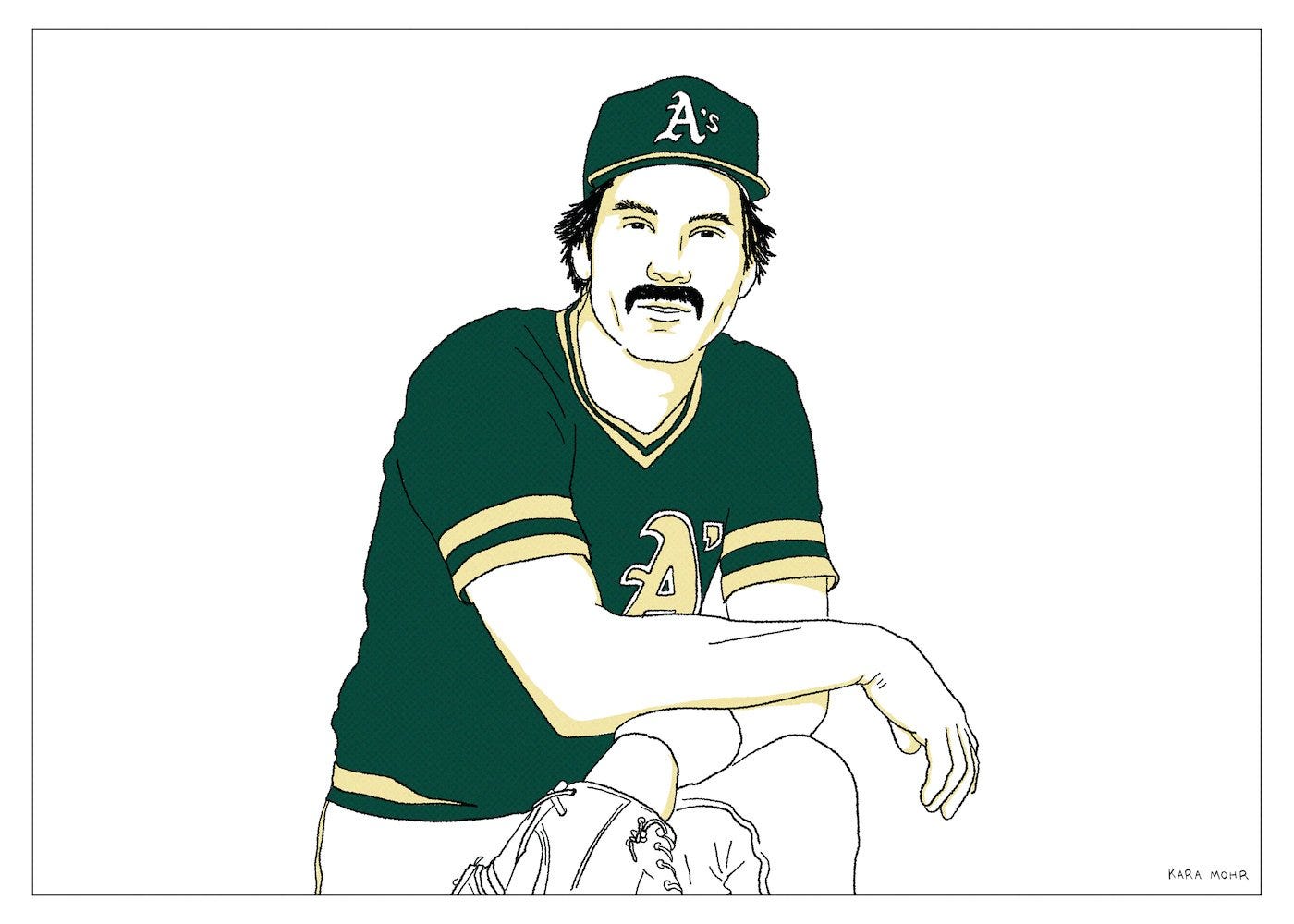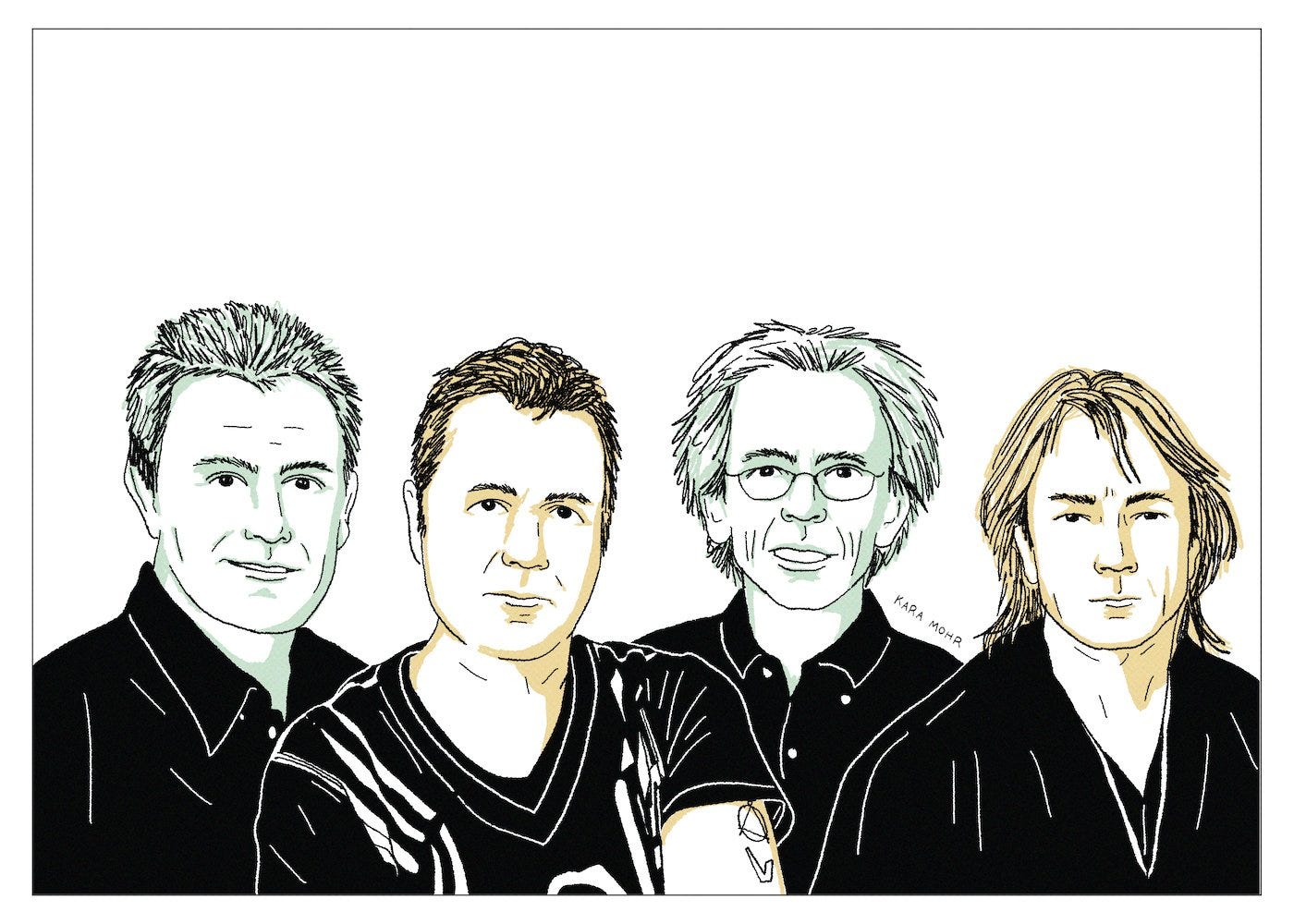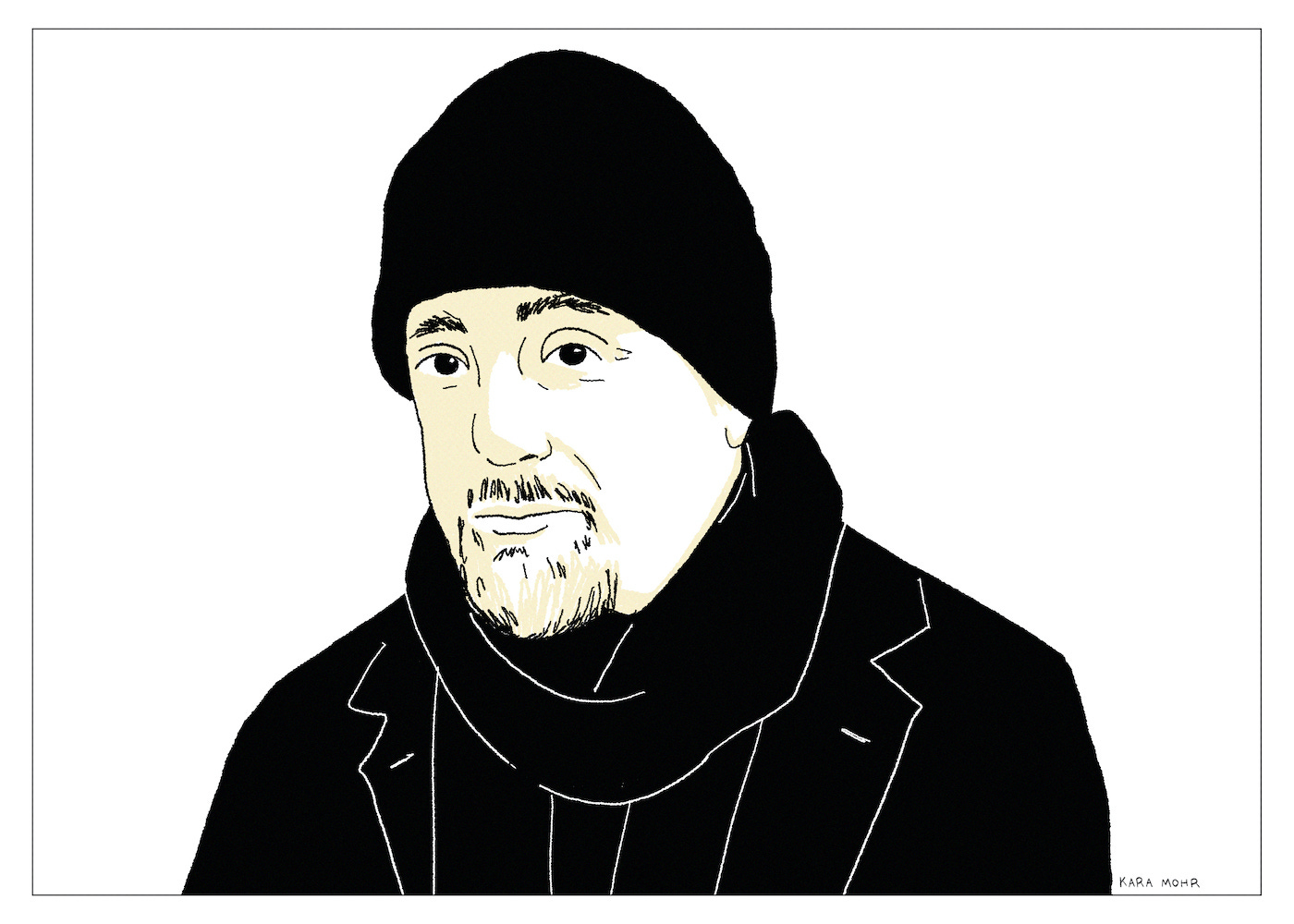Past Prime Issue #18
Los Lobos, Asia, Ed Kowalczyk, A.I. Billy Joel & Dave Kingman
It’s April—the start of baseball season—which means that I spend my mornings perusing M.L.B. boxscores & my evenings mistreating my rotator cuff as the (humble brag) assistant to the assistant coach of a second place Little League team. Sweet April—a season of rebirth & hope. Unless, of course, you are the Oakland (soon to be Sacramento & then Las Vegas) Athletics. In addition to being baseball’s current basement dwellers, the storied franchise was also the final landing spot for one of the game’s great villains—Dave “King Kong” Kingman. Kingman never assaulted a hand-less heckler like Ty Cobb. He never bet on baseball like Pete Rose. He (probably) never took performance enhancing drugs like his Bash Brother teammates. But he did spend sixteen seasons as the most universally disliked man in the sport. Dave Kingman was the Stephan Jenkins of Major League Baseball.
So, why Kingman? Why kick off this issue with “Kong”? Well, this Past Prime work involves a lot of reconsideration. Reconsidering what “Prime” means. Reconsidering obvious duds (see Limp Bizkit “Still Sucks” & Chicago “XXXII: Stone of Sisyphus”). And reconsidering famous villains (see Albert Belle & John Mayer). Dave Kingman was a grown man—a superstar—every fifteen times at the plate & a helpless child the other fourteen times. Like Kingman, many of his teammates—especially the young sluggers—struck out more than they walked. However, none of them could destroy baseballs quite like Dave Kingman. And none of them were loathed quite like him. Everybody was awed by King Kong. But nobody rooted for him. So, for one week & two thousand words, I tried.
From the ashes of Progressive Rock royalty, rose Asia—four men so proficient on their instruments that they threatened the very definition of the term “supergroup.” John Wetton, of King Crimson, on bass & vocals. Steve Howe, of Yes, on guitars. Geoff Downes, also of Yes, on keyboards. And Carl Palmer, of E.L.P., on drums. This was a band with no technical weakness. A band that readers of Guitar World, Modern Drummer & Keyboard Magazine never dreamed of but only because it was beyond their wildest dreams. And while they were the world’s biggest Rock band in 1982, by 1985 had become an inverse Menudo—a revolving door of members who had to age into the band, could not dance & could not speak Spanish. If a computer—even a very old one—was tasked with naming an album made by the original four members of Asia who were reuniting for the first time in two decades, I am certain it would land on “Phoenix.” The metaphor of that ancient, immortal, mythological bird rising up again is simply too good to pass up on. “Phoenix” speaks to the passage of time, fire, beauty, erudition & regeneration. It is quite literally, in one single word, the perfect title for Asia’s comeback album—as ridiculous as it is accurate.
Ed Kowalczyk “The Flood and The Mercy”
Today, Live is Ed Kowalczyk plus paid studio & touring musicians. Ed’s childhood friends—Patrick & the two Chads—were relieved of their duties after years of lawsuits, countersuits & shady dealings with a shadier con man. Meanwhile, Kowalczyk, now a fifty-something, rat-tail-less, father of four, charms fans on Totally Nineties tours & delights deejays on retro adult radio formats. But in between his confusingly named solo debut (“Alive”) and his return to Live, Ed released a second solo album—a commercial failure & a critical “nope.” Middle-aged me had zero interest in “The Flood and The Mercy.” But seventeen year old me—the me who in 1992 saw Live open for Blind Melon & who was still a work in progress & who was convinced that Live were generationally important—felt otherwise.
Billy Joel “Turn the Lights Back On”
Billy had been stashing away ideas for years—parts of melodies, little hooks, half bridges, hummed choruses—but could not, would not complete a song. And so, rather than push him to the brink, Freddy Wexler politely requested to check out some of those song scraps. Eventually, through a combination of talent, elbow grease, Wayne Hector & Arthur Bacon, “Turn the Lights Back On” was born. The story is vague enough to be true. But it is also vague enough to make me ask, “Did Billy write the song at all?” The more I considered it, the more plausible it seemed that a very smart A.I. might have produced “Turn the Lights Back On.” Maybe Billy Joel’s new single was an A.I. deep fake. Maybe its perfection was actually an uncanny valley.
Richard Lloyd “The Ambient Monkey”
Following their unexpected reunion in 1992, Richard Lloyd & Tom Verlaine maintained a polite working relationship born out of financial necessity & creative compatibility. The fallout from the first Television breakup had cost Lloyd a good deal of his commercial prime. The sequel, meanwhile, was a long, sputtering, part time concern. Lloyd made a small splash in 1991 for his appearance on Matthew Sweet’s “Girlfriend.” In 2001 he quietly released his first album in more than a decade. But, by 2007, he’d had enough. He’d had enough of waiting to make another Television record. He’d had enough of Tom being Tom. And so Lloyd finally resolved that—no matter how much he admired Tom Verlaine as an artist or even as a friend—he did not want him as a boss any more. Thirty-four years after he first joined the band & thirty-two years after he first quit the band & twenty-nine years after Verlaine broke up the band, Richard Lloyd quit Television & released “The Radiant Monkey,” his fifth solo album.
Over the course of nearly fifty years & seventeen studio albums, Los Lobos have been many things. A wedding band. A Rock band. A Folk band. A Punk band. They’re omnivores—multi-instrumentalists, songwriters, radical interpreters & loyal cover artists. Their influences are as diverse as their influence—members of the band have appeared on records from pretty much every legend who's passed through Los Angeles since 1980. From Bob Dylan to Eric Clapton & from Dolly Parton to Bonnie Raitt. Like their hometown, Los Lobos are diffuse. And like their hometown, they are Mexican. Which is why, more than anything, Los Lobos are underestimated. Pop music comes in many forms, but it gravitates to the specific & the English. Los Lobos’ greatness lies in the fact that they are almost the complete opposite of those things.
At just eight songs & barely thirty minutes, “Boeckner!” is closer to EP than LP. And if judged as an EP—the format which Wolf Parade chose to thrice introduce themselves way back when—I’d call it a success. A couple misses, a couple keepers & four undeniable bangers that justify the record’s titular exclamation point. Considered as an LP, however, “Boeckner!” feels a bit small. Or rather a little short. And in that way it recalls Joe Strummer—Boeckner’s spiritual forebear & the most important guy in the most important band in the world who never had the will or the want or the whatever to be that guy solo, without The Clash. As magnetically cool & as evidently smart & talented as he might be, Dan Boeckner—like Strummer, like most of us—needs a partner. Twenty years with Spender Krug. A glorious season with Britt Daniel. Five plus years with Alexei Perry. And nearly decade with Devojka, Boeckner’s bandmate in Operators & the co-writer on half of “Boeckner!”








